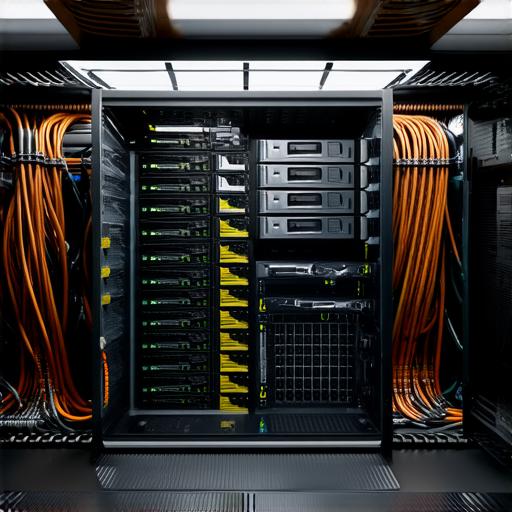Why a Dedicated Server for 7 Days to Die?
Before we dive into the requirements and best practices, let’s first understand why you might want to set up a dedicated server for 7 Days to Die in the first place.
A dedicated server provides several benefits over shared hosting or cloud hosting:
- Performance: A dedicated server gives you complete control over your server resources, including CPU, RAM, and storage. This means that you can allocate more resources to your 7 Days to Die game, resulting in faster load times and smoother gameplay for your players.
- Customization: With a dedicated server, you have full access to the server settings and configurations. This allows you to customize the server to meet the specific needs of your community. For example, you can set up mods or plugins that aren’t available on shared hosting platforms.
- Security: A dedicated server provides a more secure environment for your 7 Days to Die game. By having your own server, you can implement security measures such as firewalls and intrusion detection systems to protect your game from hackers and cheaters.
- Scalability: With a dedicated server, you have the flexibility to scale your resources up or down as needed. This means that you can easily add more RAM or storage to your server if your community starts growing.
Requirements for Setting Up a Dedicated Server for 7 Days to Die
Now that we understand the benefits of setting up a dedicated server for 7 Days to Die, let’s take a look at the requirements you’ll need to get started:
- Hardware: To set up a dedicated server for 7 Days to Die, you’ll need a physical server with at least the following specifications:
- CPU: Intel Core i5 or higher
- RAM: At least 8GB of DDR4 RAM
- Storage: At least 2TB of storage (SSD is recommended)
- Operating System: You’ll need to choose an operating system for your server. The most popular choices for 7 Days to Die are Ubuntu Server and CentOS.
- Power Supply Unit (PSU): A dedicated server requires a high-quality PSU to ensure that the server stays powered and stable. Look for a PSU with at least 500W or higher.
- Cooling: A dedicated server generates a lot of heat, so you’ll need a good cooling system to prevent overheating. Consider using a liquid cooling system or a high-quality air cooling system.
- Internet Connection: Your dedicated server will need an internet connection with sufficient bandwidth to handle the traffic from your 7 Days to Die game. Look for a connection with at least 10Mbps or higher.
- Server Management Software: To manage your dedicated server, you’ll need software such as cPanel or Plesk. These tools make it easy to install and configure your 7 Days to Die game, as well as manage other aspects of your server.

Best Practices for Setting Up a Dedicated Server for 7 Days to Die
Now that we’ve covered the requirements for setting up a dedicated server for 7 Days to Die, let’s take a look at some best practices to help ensure your server is running smoothly:
- Backup Your Data: Always back up your data before making any major changes to your server or game. This will ensure that you can restore your data in case of any issues or crashes.
- Install Security Measures: Implement security measures such as firewalls and intrusion detection systems to protect your 7 Days to Die game from hackers and cheaters.
- Optimize Server Settings: Configure your server settings to optimize performance for your 7 Days to Die game. This may include adjusting the number of slots, allocating more resources to specific tasks, or implementing caching mechanisms.
- Update Software Regularly: Keep all of your software up-to-date to ensure that you’re running the latest security patches and bug fixes.
- Monitor Your Server: Use server monitoring tools to keep track of your server’s performance and identify any issues before they become major problems.
- Communicate with Your Community: Communicate regularly with your 7 Days to Die community to gather feedback on the server and make improvements as needed.
Summary
Setting up a dedicated server for 7 Days to Die requires careful planning and consideration of hardware requirements, operating system choices, and best practices for managing the server. By following these guidelines, you can create a stable and secure environment for your 7 Days to Die game that will provide an enjoyable gaming experience for your community.